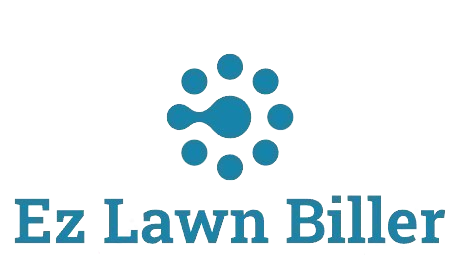Managing your schedule effectively is crucial for lawn care professionals. Discover best practices that will streamline your operations and enhance client satisfaction.
Manage Schedules: Best Practices for Lawn Care Pros
In the fast-paced world of lawn care, managing schedules efficiently can be the difference between success and stagnation. For lawn care professionals, optimizing time and resources not only improves productivity but also enhances customer satisfaction. In this comprehensive guide, we will delve into best practices for managing schedules that will elevate your lawn care business to new heights. From leveraging technology to create efficient routing plans, to implementing communication strategies that keep clients informed, we will cover everything you need to know to streamline your operations.
As lawn care professionals, your time is valuable. The more efficiently you manage your schedule, the better service you can provide to your clients. In this article, we will explore key strategies that every lawn care provider should consider. We’ll discuss the benefits of using specialized lawn service software, tips to prioritize tasks, and the value of effective communication with clients. By the end of this post, you’ll be equipped with actionable insights to enhance your scheduling practices and improve your overall business performance.
Understanding the Importance of Efficient Scheduling
Efficient scheduling goes beyond just filling up a calendar. It involves strategic planning that takes into account travel times, service durations, and client preferences. According to a study, companies that optimize their scheduling can see up to a 30% increase in productivity. This is especially relevant for lawn care professionals who often juggle multiple clients and varying service requirements.
An effective scheduling system allows lawn care providers to maximize their time on-site, reduce fuel costs by minimizing travel distances, and ensure that all clients receive timely services. For instance, grouping clients in close proximity can significantly reduce transit time. Moreover, maintaining a clear schedule helps prevent overbooking, which can lead to dissatisfied customers. Implementing best practices in scheduling will not only save time but also boost your professional reputation.
Leveraging Lawn Billing Software for Scheduling
One of the most effective tools for managing your lawn care business is a dedicated lawn billing software like EZ Lawn Biller. This software is designed to automate not only billing but also scheduling tasks, making it easier for professionals to manage their time and services. With features like automated invoicing and service tracking, lawn care providers can focus more on customer satisfaction rather than administrative tasks.
Using a lawn service software allows for easy modification of schedules based on weather conditions or client requests. Imagine being able to adjust your appointments with just a few clicks, ensuring that you stay organized and responsive to client needs. Furthermore, the mobile access feature allows you to manage your schedule on-the-go, ensuring that you are always in control, whether you are in the office or out in the field.
Establishing Priorities in Scheduling
Not all lawn care jobs are created equal. Some clients may require immediate service due to time-sensitive needs, while others may have more flexibility. Establishing clear priorities when scheduling can help you address urgent requests without neglecting other clients. Start by evaluating each client’s needs and urgency, then allocate time accordingly. For example, a client with a special event may need immediate attention compared to routine maintenance clients.
Consider implementing a system where you categorize clients based on the frequency of services or urgency. High-priority clients may have weekly services while lower-priority clients might be on a bi-weekly schedule. This ensures that you meet the most pressing demands while maintaining a balanced workload. Additionally, consider using a lawn company app that allows clients to book their services directly, streamlining the scheduling process and reducing the back-and-forth communication.
Utilizing Technology for Route Optimization
In lawn care, time is often spent on the road, which can reduce overall profitability. By utilizing route optimization technology, lawn care professionals can minimize travel times between jobs. Modern lawn service computer programs can analyze factors such as traffic conditions, distances, and service durations to create the most efficient routes for your team.
For instance, if you manage a large area, taking advantage of tools that provide real-time analytics can help you make informed decisions on daily routes. This not only saves fuel and time but also allows for more appointments to be completed each day. By taking the guesswork out of scheduling, you can focus on delivering high-quality services to your clients.
Communicating Effectively with Clients
Effective communication is key to successful scheduling. Clients appreciate being kept informed about their service times, especially if there are any changes due to weather or other unforeseen circumstances. Establishing a reliable communication channel, whether through phone calls, emails, or a lawn service app, will enhance your relationship with clients and increase their satisfaction.
For example, sending out reminders prior to scheduled services can help reduce no-shows and ensure that clients are prepared for your arrival. Additionally, consider asking for feedback after each service to understand whether your scheduling meets their expectations. This feedback can be invaluable for making adjustments and improving your overall service delivery.
Implementing a Feedback Loop for Continuous Improvement
Once you have established a scheduling system, it’s essential to measure its effectiveness. Implementing a feedback loop where you regularly assess and analyze scheduling practices can lead to continuous improvement. Collect data on how long tasks take, client satisfaction rates, and any service delays that occur. This information can help you identify patterns and areas for improvement.
For instance, if certain routes consistently result in delays, it may be time to reassess how you schedule those clients. Furthermore, analyzing billing cycles can help you understand your cash flow better and optimize service delivery. Using software like EZ Lawn Biller can simplify this data collection process, allowing you to generate reports that provide insights into your scheduling effectiveness.
Best Practices for Seasonal Scheduling
Seasonality can significantly impact the lawn care industry, with demand fluctuating throughout the year. As a lawn care provider, it’s crucial to adjust your schedules to accommodate these seasonal changes. During peak seasons, you may find yourself with a heavier workload, while off-peak times might require a different approach to client engagement.
Consider offering promotional services or discounts during the off-season to encourage clients to continue services year-round. Additionally, maintaining an organized scheduling system that can easily adapt to changing seasons will help you manage workloads effectively. An effective lawn service software can assist in tracking seasonal patterns, ensuring that you are always prepared for the next busy period.
Training Your Team for Efficiency
If you manage a team, effective scheduling also involves training your staff to understand and adapt to your scheduling system. Ensure that all team members are trained on the importance of punctuality and the procedures for communicating with clients. This will help create a culture of accountability and professionalism, which is essential in the lawn care industry.
Regular meetings to discuss scheduling challenges and successes can foster teamwork and encourage open communication among your staff. Sharing insights on what works and what doesn’t can lead to innovative solutions that improve efficiency across the board. Remember, a well-scheduled team is a productive team, and investing time in training will pay off in the long run.
Conclusion
Managing schedules effectively is crucial for lawn care professionals looking to maximize efficiency and client satisfaction. By leveraging technology, establishing clear priorities, and maintaining open communication, lawn care providers can streamline their operations and ensure they meet the demands of their clients. Remember, the right lawn service software can be an invaluable tool in achieving these goals.
As you implement these best practices, keep in mind that continuous improvement is key. Regularly assess your scheduling processes, gather feedback from your clients, and adjust as needed. The ability to adapt and improve will not only enhance your service delivery but also contribute to the growth and success of your lawn care business.
Ready to take your lawn care scheduling to the next level? Explore tools like EZ Lawn Biller to enhance your efficiency and provide top-notch service to your clients.




